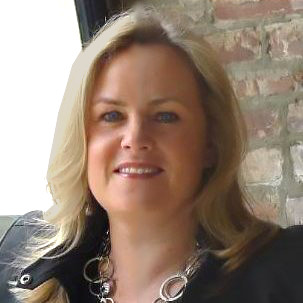
Mortgage Basics: Understanding The Terminology Of Buying A Home
6/22/2021
 Buying a home, especially for the first time, can feel overwhelming. It's often the biggest financial commitment that you'll make in your life. Besides the concerns of buying a home with ‘good bones' that won't become a money pit, there is a lot to learn about the mortgage process. The lending industry has its own terminology that can seem like a foreign language to a newcomer.
Buying a home, especially for the first time, can feel overwhelming. It's often the biggest financial commitment that you'll make in your life. Besides the concerns of buying a home with ‘good bones' that won't become a money pit, there is a lot to learn about the mortgage process. The lending industry has its own terminology that can seem like a foreign language to a newcomer.
Here's the skinny on the terms you'll come across during the mortgage process:
Amortization: The gradual reduction of principal over the term of the loan. It describes the dispersal of your loan repayments over the life of your loan. At the beginning of your loan repayment period, you will be paying more interest than principal. This will gradually change over the life of your loan so that by the end of your repayment period, you will be paying more principal than interest.
APR – Annual Percentage Rate: Sounds like this is the same as the mortgage interest rate, but it incorporates not only the interest rate, but also other costs like mortgage closing costs, fees, and mortgage insurance. It's designed to give you a better idea of the overall cost of your loan. You can use it to compare one loan to another when you are shopping for a mortgage.
Read more: Tips to Avoid Housing Counseling Scammers
ARM/Convertible ARM: These Adjustable Rate Mortgages usually have an initial fixed-rate period of several years. After this period, the loan ‘converts' to an adjustable rate. The interest rate can move both up or down depending on the housing market, but will only change once per year.
Appraisal: Before you can close on a mortgage, you will need to have your property appraised. Your lender will need confirmation that your property is worth the money you agreed to pay for it before they will risk providing you with the mortgage.
Balloon mortgage: This type of mortgage gets its name from the large payments that are due at the end of the mortgage period. Normally with a balloon mortgage, you pay just the interest for the majority of the loan period, but are required to pay the balance at the end.
Closing Costs: You pay these fees to your lender at the time of signing the mortgage documents (the closing). Closing costs are usually in the region of 4-5% of the value of your loan. These fees include the cost of the appraisal and origination fees.
Debt to Income Ratio (DTI): This is the ratio produced by dividing your total recurring debts by your total monthly gross income. Your DTI lets lenders determine if you have enough income to cover the cost of your debts including the new mortgage.
Deed: The deed is the physical legal document that transfers the ownership of the property to you. In conjunction with the ‘Title' which gives you the right to use the property. It's important to note that the deed is a legal document while the title is the power that comes with the deed, to use the property.
Delinquency and Default: A mortgage will become delinquent when monthly payments are missed. After several months, the loan will fall into default and foreclosure proceedings may begin. A mortgage must be delinquent for at least 120 days before the bank can move ahead with foreclosure. A federal loan must be at least 9 months delinquent before it goes into default. If you are falling behind with your mortgage, seek the help of a certified housing counselor as soon as possible to get back on track.
Down Payment: Most loans require you to have a minimum of 20% of the purchase price of the home to pay up front as a down payment, some loans require as little as 3% down payment. You'll need to have this money available at the closing.
Equity: The difference between the principal balance of your mortgage and the current market value of your home. For example, if your home is worth $500K and you have a mortgage of $200K you have $300K equity in your home.
Escrow: An escrow account holds funds for home insurance and property taxes and is paid to the lender. You'll pay for these items monthly along with your mortgage payment. Your lender will then pay the insurance and taxes directly. This is a convenient way to pay these items and spreads the cost over the entire year.
FHA Mortgage: These are government-backed (Federal Housing Administration) loans that are often easier to obtain than a regular loan if you have a lower credit score, or higher unsecured debts.
Fixed Rate Mortgage: This kind of mortgage has the same interest rate for the life of the loan. If you think that interest rates will increase over the term of the mortgage, then locking in your interest rate at the beginning can provide stability knowing that the payment amount will never change.
Read more: Beating the Odds With Housing Counseling [Infographic]
Foreclosure: If you fail to pay your mortgage for several months, the loan will become delinquent and eventually fall into default. Once that happens, the bank may begin foreclosure proceedings whereby they take possession of the home and it will no longer be yours. If you are falling behind with your mortgage, seek the help of a certified housing counselor as soon as possible to get back on track.
Freddie Mac/Fannie Mae: These are government enterprises that purchase mortgages from banks. Fannie Mae purchases loans from large commercial banks while Freddie Mac buys from smaller lenders. These two entities help provide affordable housing loans and therefore help to stabilize the mortgage market.
HELOC: This is a Home Equity Line of Credit. If you have enough equity in your home, you can apply for a HELOC. You can borrow for any purpose against this open line of credit. The collateral for this kind of loan is the house itself, so it's important that you treat your HELOC with some restraint. Using our earlier example, if your home is worth $500K and you have a mortgage of $200K, you have $300K equity in your home. A bank may allow you to establish a HELOC for a portion of the equity, say $75K. Many people choose to have a HELOC and never borrow against it unless there is an emergency. HELOCs are often for a 30-year term whereby you can borrow against the loan for the first 20 years, but need to pay the balance back in the final 10 Years. If you do use a portion of your HELOC, it's a good idea to pay it back as soon as you're able and before the final 10 year period. You will need to pay monthly interest on any portion you borrow during the life of this loan.
Housing Counseling: If you're struggling to make monthly mortgage payments or thinking about buying your first home, you probably have a lot of questions. Approved by the U.S. Department of Housing & Urban Development (HUD), housing counselors can provide unbiased guidance to homeowners and consumers. Certified housing counseling services enable consumers to make informed and reasonable decisions to achieve their housing goals. Counseling topics can include default/foreclosure prevention, pre-purchase counseling, reverse mortgage/home equity conversion mortgage (HECM) counseling, and rental counseling, depending on your needs.
Interest rate: The percentage rate that your lender charges to borrow money. Interest rates can be fixed or adjustable. Fixed rates don't change for the life of the loan, however adjustable rates will change often after a specified fixed rate period.
Interest only Mortgage: Mortgage that gives the option of paying just the interest, or the interest and some principal during the initial years of the loan. A common example of an interest only loan is a HELOC.
Origination Fee: These fees seem like a hefty hit when you're applying for a loan. An origination fee is part administration fee and processing fee. It will be around 0.5% – 1% of the loan amount. You can sometimes negotiate these fees down however that's often at the expense of a higher interest rate.
Pre-Approval: Being pre-approved for a mortgage before you begin to look for a home is a good idea. Not only does having a preapproval document tells the seller and real estate agent that you're a serious buyer, but it also lets you know exactly how much you can afford to pay for a home.
Read more: What is Pre-Purchase Housing Counseling?
Points: It is possible to ‘purchase' a lower interest rate for the life of your loan if you pay a lump sum up front. One point is equal to one percentage point of your loan total. The more points you buy, the lower the interest rate you will secure for your loan. Remember that you need to come up with the money for these points at the time of closing the loan.
Principal/Interest: Principal is the value of your mortgage. This is that amount that you owe before the interest is included. The amount of interest you pay each month is determined by the interest rate (which can be fixed or adjustable). As you begin to pay off your mortgage, the value of the principal will decrease. When you start to make payments, the majority of your monthly payment will go towards interest. As you pay your mortgage over time there is a gradual shift in the composition of the payment where more of your payment will go towards the principal rather than the interest.
PMI, Private Mortgage Insurance: This insurance covers the lender in case you're not able to pay your mortgage. It's required if you have less than a 20% down payment on your home. Private Mortgage Insurance can allow you to obtain an affordable mortgage with less than 20% saved towards your home.
Title Search/Title Insurance: The title is the official record of who actually owns the home. You'll need to have a reputable Title Company perform a Title Search. This search will follow the ownership of the property through its history of being purchased and sold, tracking the legal ownership. It will let you know that the person selling you the house is the official owner. It will also tell you if there are any other outstanding claims on the property. Title insurance covers your claim to ownership to the property after you have purchased the property.
Lori Stratford is the Digital Marketing Manager at Navicore Solutions. She promotes the reach of Navicore's financial education to the public through social media and blog content.
You can follow Navicore Solutions on Facebook, X, LinkedIn and Pinterest. We'd love to connect with you.
